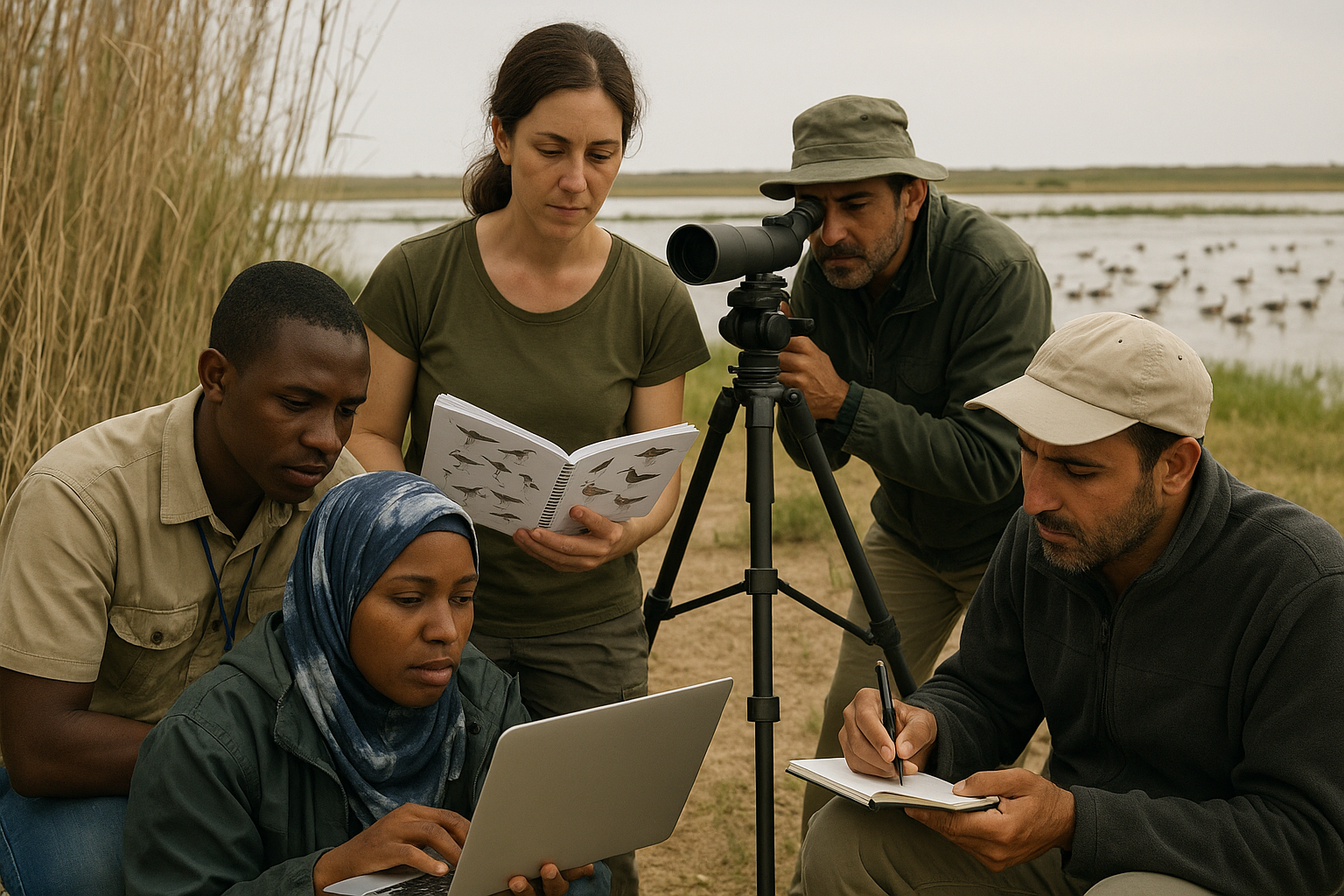FAO Launches Landmark MOOC to Boost Wetland, Waterbird Conservation in Sahel
The project is co-financed by the French Facility for Global Environment (FFEM) and the European Union, and emphasizes community-driven conservation efforts.

- Country:
- Ghana
In a major step toward bolstering biodiversity conservation in some of Africa’s most ecologically significant yet vulnerable regions, the Food and Agriculture Organization of the United Nations (FAO) has unveiled a groundbreaking Massive Open Online Course (MOOC). The course, titled “Identifying and Counting Waterbirds in North Africa and the Sahel – How and Why?”, is designed to strengthen national and local capacities for the sustainable management of wetlands and waterbird populations across North Africa and the Sahel.
Developed under the RESSOURCE+ Project—part of the FAO-led Sustainable Wildlife Management (SWM) Programme—this initiative is a collaborative effort with Tour du Valat and the French Biodiversity Agency. The project is co-financed by the French Facility for Global Environment (FFEM) and the European Union, and emphasizes community-driven conservation efforts.
A Free Online Course with Global Reach and Local Focus
This new MOOC is open to all, offering free and unlimited access to participants worldwide. However, it is specifically tailored for French-speaking stakeholders from North Africa and the Sahel, including environmental officers, wildlife managers, NGO staff, community leaders, students, and amateur ornithologists.
“By strengthening the national and local capacities in the participating countries, this massive online open course will foster sustainable wetland management and biodiversity conservation,” said Zhimin Wu, Director of FAO’s Forestry Division.
Course Highlights: Skills for Monitoring and Stewardship
Registration is currently open for the first session of the course, with enrolment accepted until 1 December 2025. Participants are expected to complete the course within three months, although the training itself is structured to take approximately six weeks on a self-paced basis.
The course content is comprehensive and immersive:
-
40 hours of interactive training
-
Six structured modules covering waterbird ecology, monitoring techniques, data interpretation, and conservation strategies
-
35 animated sequences and 10 expert interviews
-
Over 5,000 bird photos and video clips for real-life identification practice
-
210 species factsheets focused on the most relevant waterbirds in the region
-
Regular quizzes, assessments, and additional learning resources
-
Real-time interaction with course designers during the first six weeks via an integrated chat function
Certification is awarded to participants who successfully complete the course, enhancing both professional qualifications and on-the-ground conservation capacity.
Addressing the Urgency of Wetland Protection
The Sahel and North Africa are home to critical wetland ecosystems that support not only regional biodiversity but also millions of people who depend on them for water, food, agriculture, and livelihoods. However, these ecosystems are under increasing pressure from climate change, habitat degradation, overhunting, and weak regulatory frameworks.
Waterbirds serve as vital indicators of wetland health. Their migratory behavior and habitat requirements offer insights into broader ecological trends, making accurate monitoring and identification skills essential for conservation planning.
Through the MOOC, FAO and its partners aim to build a decentralized network of trained waterbird observers, capable of contributing to national databases, informing policy, and implementing best practices in wildlife and habitat management.
The RESSOURCE+ Project: Empowering Conservation from the Ground Up
Launched to support governments and local communities in monitoring and conserving waterbird populations and wetland habitats, the RESSOURCE+ Project operates in several Sahelian countries. It focuses on:
-
Promoting scientific waterbird monitoring protocols
-
Encouraging sustainable levels of hunting
-
Assisting national authorities in developing evidence-based conservation policies
-
Empowering local communities to become active participants in wetland stewardship
FAO’s approach through RESSOURCE+ is notably inclusive, working with governmental bodies, wildlife institutions, non-governmental organizations, and indigenous groups. This ensures that conservation efforts are not only scientifically sound but also socially equitable and locally driven.
Looking Ahead
With additional MOOC sessions already planned for 2026 and beyond, FAO envisions the program becoming a cornerstone of wetland conservation training in Africa. The course also lays the groundwork for long-term regional cooperation on migratory bird conservation and ecological monitoring.
As digital learning becomes an increasingly powerful tool for environmental education, initiatives like this MOOC show how accessible, multilingual, and interactive training can bridge knowledge gaps and create grassroots capacity for tackling biodiversity loss.
To register or learn more, participants can visit the official FAO MOOC platform. The course offers an opportunity not only to gain valuable ecological knowledge but also to contribute to the preservation of some of Africa’s most vital ecosystems.










